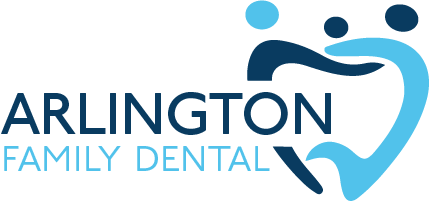
20 Sep Young Adults and Oral Health
Young adulthood is an exciting time in people’s lives. Depending on who you ask, this stage of life spans from 18 to around your early-30s. During that time you’ll experience some of life’s biggest milestones—going to school, starting a career, buying a home, starting a family.
In this time of change and excitement, it’s easy to let some things fall through the cracks. Old routines like dental hygiene can get lost in the shuffle as you cope with a constantly shifting schedule.
To help you avoid threats to your oral health in young adulthood, we’ll look at:
- Stress
- Tobacco
- Alcohol
- Drug use
- Protecting your oral health as you get older
We understand the fear of missing out. We just don’t want you to miss out on good oral health in the process. Keep reading to learn how to protect your oral health throughout young adulthood as well as the rest of your life.
Challenges to the Oral Health of Young Adults
There are many challenges that can cause you to stop keeping up with your oral health. Changes in routine and a lack of supervision can lead to new habits that may harm your oral health over the long-term, such as tobacco use, alcohol consumption, and coping with stress. Let’s take a deeper look and see how these factors can affect your oral health.
Stress
Adulting has its perks. Creating a new life can turn every day into an adventure, but can also introduce a lot of stress into your life. This kind of stress can wreak havoc on your nerves and, if left untreated, can eventually lead to:
- Cold sores
- Mouth ulcers
- Clenched teeth
- Teeth grinding
You may develop a temporomandibular disorder (TMD), which can result in chronic facial pain. Stress can lead to poor nutrition and hygiene habits that increase your risk of tooth decay and gum disease, which definitely won’t make you feel any less stressed out.
Tobacco
You may already know that tobacco usage can cause stains and discoloration of your teeth, but were you aware that it has much more serious, long-lasting effects on your oral health? Tobacco usage can lead to oral health problems such as:
- Bone shrinkage
- Loss of teeth
- Decreased blood flow to teeth and gums
Smoking can also affect your saliva, which helps remove leftover food from your teeth and mouth. Problems with saliva production increase your chances of developing tooth decay. The biggest danger to smokers is oral cancer. Smokers are nine times more likely to develop oral cancer than non-smokers.
Alcohol
Make sure that you brush your teeth before bed if you’ve had a couple of drinks. This will help remove the sugars and acids in alcohol and protect your teeth from decay. Binge drinking should always be avoided since it often leads to being sick, which increases your teeth’s exposure to acids due to vomit and acid reflux.
Another side-effect of alcohol consumption is dry mouth due to dehydration. Protect your teeth when drinking in moderation by drinking plenty of water. This will help wash away acids and sugars until you have a chance to brush your teeth before bed.
Illegal Drug Use
Drug use can also have negative effects on your oral health. Drugs can have physical and behavioral impacts on us that can do serious harm to our teeth, as well as other parts of our mouths.
These effects include:
- Dry mouth
- Grinding your teeth
- Tooth decay
Another side-effect of some illegal substances is binge eating. While it would be great if people would binge eat healthy foods that strengthen oral health, they usually opt for sugary snacks that can aid in tooth decay. What’s more, drug use can often lead you to ignore your personal hygiene, which greatly speeds up the tooth decay process.
Protecting the Oral Health of Young Adults in Arlington, GA
Despite the threats to your oral health in young adulthood, the best ways to protect your teeth and gums remain the same. Just keep doing what our team at Arlington Family Dental always encourages our patients from Calhoun County, Early County, and others to do:
- Brush twice a day for two minutes
- Floss at least once a day, preferably after meals
- Visit your dentist every six months for cleanings and checkups
Maintaining good dental hygiene can be difficult in times of transition. As you move into young adulthood, it’s important to remember that you’ll be caring for your mouth for the rest of your life. Developing good habits now won’t just make your next checkup go better, it will help to ensure that you have a lifetime of good oral health.
Arlington Family Dental is open 8 a.m. – 5 p.m., Monday through Thursday to help with all your dental needs. Call us today at (229) 725-4545, or you can schedule an appointment online.

Sorry, the comment form is closed at this time.